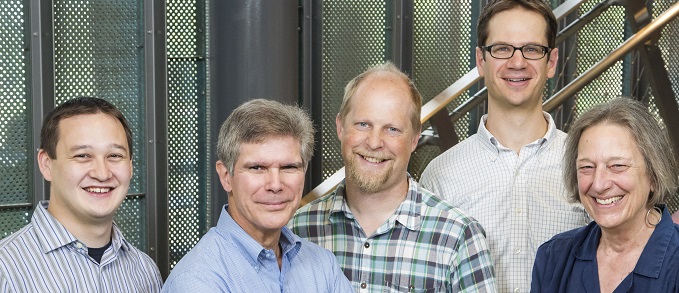U of I team, including two from Education, leads $2M NSF study on best practices for STEM education reform
by Siv Schwink / Sep 27, 2013

U of I physicist and chair of Educational Psychology José Mestre is the principal investigator on a new study at that will seek to provide U.S. higher education institutions with a model of best practices and methods to reform gateway STEM courses offered in the first two years of study. Jennifer Greene, professor of Educational Psychology and evaluation expert, is a co-principal investigator.
SEPTEMBER 26, 2013, DEPARTMENT OF PHYSICS, UNIVERSITY OF ILLINOIS, Siv Schwink — In December, the Obama administration announced that increasing the number of U.S. college graduates with degrees in science, technology, engineering and math (STEM) by one million over the next decade is a top priority that will be bolstered by several federal agencies. A new study at the University of Illinois will seek to provide U.S. institutions of higher education with a model of best practices and methods to reform gateway STEM courses offered in the first two years of study, where increased enrollments, student retention, and diversity are critical to meeting the growing national demand for STEM degree holders.
The National Science Foundation will fund the multi-year study, slated to begin in January, through a $2 million WIDER (Widening Implementation & Demonstration of Evidence Based Reforms) Grant. The ambitious U of I STEM education reform project spans three colleges—Liberal Arts and Sciences, Engineering, and Education—and targets 10 academic units—Physics, Mechanical Science and Engineering, Civil and Environmental Engineering, Electrical and Computer Engineering, Computer Science, Math, School of Integrative Biology, School of Molecular and Cellular Biology, Geology, and Chemistry. The gateway courses in these units enroll over 17,000 students annually, and several of the courses are required for nearly all STEM majors on campus.
U of I physicist and educational psychologist José Mestre is the principal investigator on the study.
“The big idea here is not to invent new reforms,” explained Mestre. “It’s taking evidence-based reforms—these are best practices for teaching and learning in gateway STEM courses that have already been extensively tested and proven—and looking at how these can most effectively be implemented in an institutional setting. This is challenging because each department at a university will have its own methods and traditions and will generally resist change.”
Read the entire article …
PHOTO: The NSF WIDER team at the University of Illinois will study the implementation of education reform in gateway STEM courses across 10 academic units on campus to develop a transferable model for implementing STEM education reform. Each unit will form its own 'community of practice' to introduce evidence-based pedagogies that will improve student recruitment, retention, and diversity in STEM majors. The project, which has implications for STEM education reform at institutes of higher education across the U.S., will improve the learning experience for 17,000 STEM students at the U of I. Pictured from left to right are Professors Geoffrey Herman, José Mestre, Jonathan Tomkin, Matthew West, and Jennifer Greene. Photo by L. Brian Stauffer